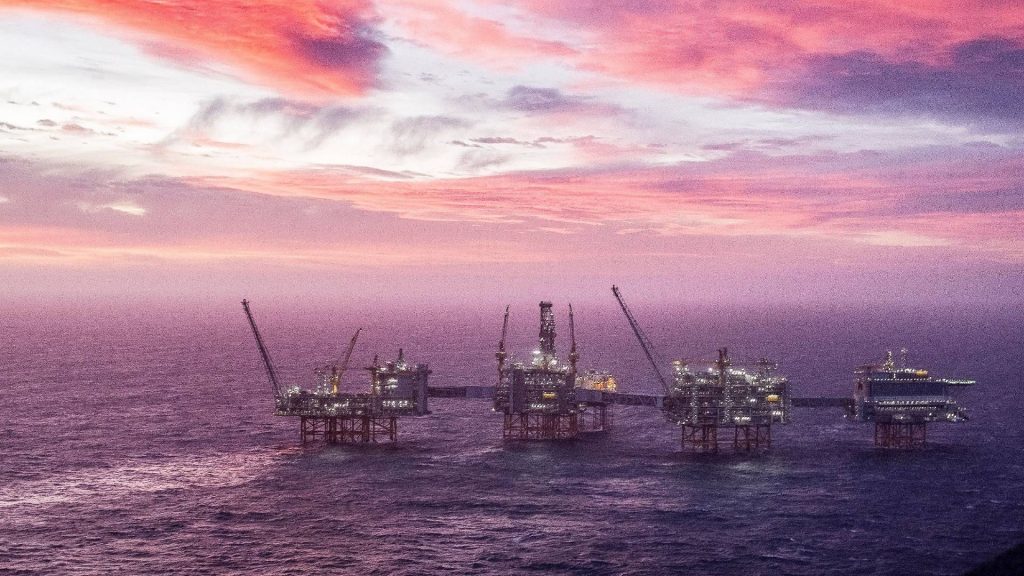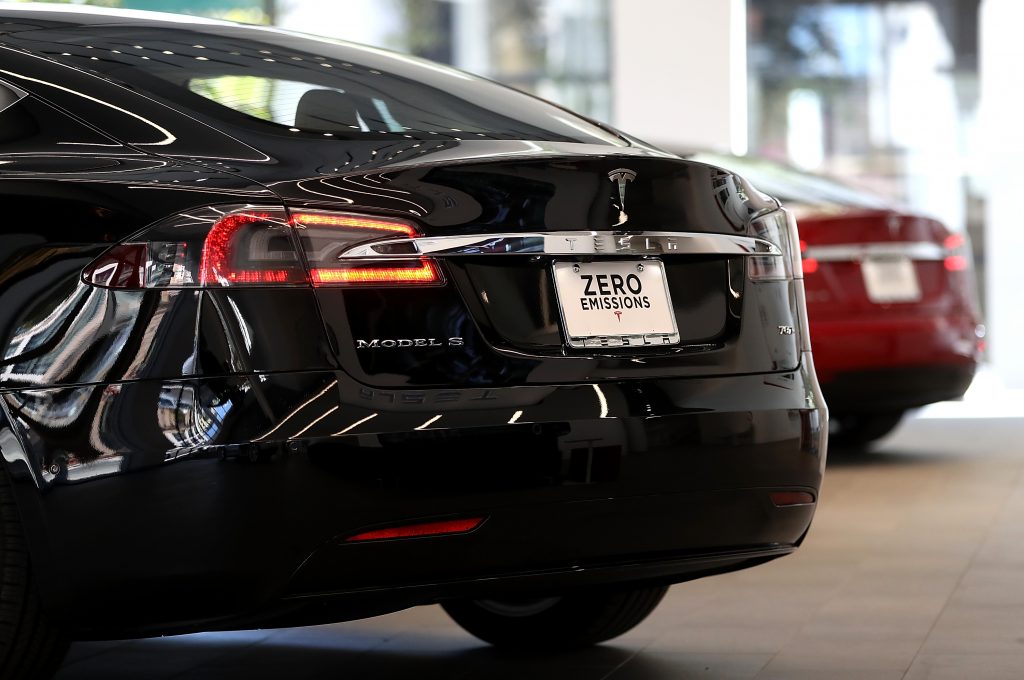Blog – Are Norway’s energy policies caught between ‘black gold’ & green ambitions?

During the next parliamentary elections in Norway, to be held in September this year, it is inevitable that the economy will be a major issue.
Overall, the country’s economic picture has shown signs of improvement during the first half of 2021, a trend which may continue should the country’s planned reopening policies be successful and border controls are able to be fully lifted in the short term.
The outcome of the election is, for the moment, uncertain, given that although Prime Minister Erna Solberg of the Conservative Party (Høyre) remains popular, including for her government’s pandemic policies, recent polls suggested that the opposition Labour Party (Arbeiderpartiet), led by Jonas Gahr Støre, was enjoying an edge in public support. A potential wild card in the vote will likely be the Centre Party (Senterpartiet), which has emerged from being largely viewed as an agrarian and peripheral organisation to one that has caught much voter attention, including in rural areas and in Norway’s northern regions, due to its support of government decentralisation, lower taxes, and economic protectionism.
Connected to many of these issues is the looming question of the direction of Norway’s energy policy, and specifically regarding its omnipresent fossil fuel industry. Since the late 1960s, petroleum has been at the core of the country’s economy, permitting its governments to develop and expand the Government Pension Fund – Global, the largest such endeavour of its kind, (commonly referred to as the ‘Oil Fund’ or Oljefondet). At the time of writing, the value of the fund was approximately NOK 11.6 trillion, or US$1.34 trillion.

As a major oil exporter, Norway bore the brunt of the collapse of oil prices at the start of the global pandemic, with plans for offshore exploration (initially) sharply curtailed. As the global economy begins a halting recovery, with many hoping to resume travel by land, sea and air in the coming months, petroleum markets have responded accordingly. This month, oil prices per barrel rose to over US$70, prompting speculation that as a result of pent-up demand and an improved global health situation, a return to US$100-plus per barrel levels, not seen since 2014, could be a reality by next year. This could represent a significant boost to the Norwegian economy, as well as to future exploration policies, (Just this week, the Italian firm Eni reported that it had discovered a significant new oil patch in the North Sea).
Even before the rebounding of international fossil fuel prices, Oslo had insisted that it would not be abandoning new oil projects, as evidenced by a government announcement in June last year that Norway planned to continue exploration and development in its Arctic waters. During 2020, it was reported that Norwegian oil investments and production actually increased from the previous year despite uncertainties over the future of prices and demand. This month, the country’s Minister of Petroleum and Energy Tina Bru announced that eighty-four offshore blocks, including seventy in the Barents Sea, would be open to oil concerns for bidding.
Energy policies and climate change commitments
These objectives, however, have begun to generate a growing level of pushback both from environmental organisations and from international actors concerned about the growing disconnect between the country’s fossil fuel policies and its international commitments to combatting climate change. This controversy may factor into the upcoming election, as for example, the country’s Green Party [in Norwegian] (Miljøpartiet de Grønne) has pushed for the halting of new oil developments and the closure of existing projects in the southeastern Barents Sea region. The country’s Christian Democratic (Kristelig Folkeparti) and Liberal (Venstre) parties have also affirmed their opposition to further fossil fuel exploration.
Both the Conservatives and Labour are in favour of further oil development, including in the Arctic, while the Centre Party, true to its name, supports [in Norwegian] a measured reduction in extraction activity, and calls for no drilling in areas of high fishing activities, as well as the Lofoten and Vesterålen regions in the Norwegian Arctic. In the likely event that a coalition government, including smaller parties, will be required to form the next government, some compromises regarding oil and gas may be inevitable.

Norwegian energy policies have also been the focus of high-profile legal challenges. In December 2020, the country’s Supreme Court ruled in favour of Oslo in a lawsuit brought forward against the government by environmental groups, including Greenpeace, which charged that Norway’s oil policies were in violation of the country’s constitution, specifically Article 112, which states ‘Every person has the right to an environment that is conducive to health and to a natural environment whose productivity and diversity are maintained. Natural resources shall be managed on the basis of comprehensive long-term considerations which will safeguard this right for future generations as well.’
This legal saga is not over, however, as green groups as well as Sámi representatives have now taken the matter to the European Court of Human Rights, arguing that Barents Sea drilling projects are contrary to the European Convention on Human Rights [pdf].
Norway’s ‘third rail’?
Ongoing concerns about the connections between Arctic fossil fuel extraction and climate change in the Arctic are adding to the uncomfortable spotlight being placed on Norway’s Arctic policies. Last month, the International Energy Agency (IEA) published a report stressing the need for the world to achieve net zero emissions by 2050 in order to prevent future climate change effects and keep global warming below the targeted 1.5°C level. However, reaching this ambitious goal would mean an end to all future fossil fuel development. The Norwegian government, not unexpectedly, offered a tepid response to the IEA’s findings, and showed little indication of a dramatic policy change, suggesting that the country’s oil and gas policies remain a ‘third rail’ in domestic politics.
Yet despite ongoing government support for the country’s fossil fuel industry, Norway has also been trying to have its cake and eat it too by also being a strong supporter of environmentally friendly policies within the country and globally. This stance has been described as a ‘paradox’, given Oslo’s interests in drawing a clear line between its energy and environmental policies. In January this year, the Solberg administration announced an ambitious set of plans to allow Norway to continue its adherence to the Paris climate accords, including aggressive emissions reduction targets and a rise in carbon taxes by 2030 to NOK 2000 (US$235) per tonne .

Norway has also received much international attention for its policies encouraging the use of electric vehicles, (which were also the subject of recent humourous advertising campaigns in both the United States and New Zealand). The country leads in the number of EVs per capita, primarily as a result of tax regulations and government-backed incentives, and Oslo has called for all new passenger vehicles sold to be zero-emission by 2025. As of the beginning of this year, over 54% of the cars sold in Norway were EVs.
This month, the market for these vehicles was set to expand further with the announcement that Chinese auto company BYD (Biyadi 比亚迪) would shortly be sending the first of its planned Tang electric SUVs to Norway for sale. Oslo has an even loftier goal of replacing all of its current commercial airplanes with electric versions by 2040, and this month the government also agreed to survey more areas for the potential development of wind farms.
It remains to be seen for how much longer Norway can continue to maintain its current ‘dual track’ energy policies, especially in light of a more organised political opposition and greater international attention. As the election grows nearer, energy may become the most visible subject of disagreement amongst Norway’s parties and voters as the country continues to walk the line between its oil and gas interests and its determination to be active in green politics.
Related stories from around the North:
Canada: Biden, Trudeau agree to ‘safeguard’ caribou calving grounds in Alaska refuge, CBC News
Finland: The world could transition entirely to cheap, safe renewable energy before 2050: Finnish study, Yle News
Norway: Oslo issues northernmost ever drilling acreage as part of new license round, The Independent Barents Observer
Russia: Rigs sail north for drilling in Russian Arctic, The Independent Barents Observer
Sweden: Northern Sweden expects population boom from green investments, Radio Sweden
United States: Biden administration throws support behind massive Willow oil project in NPR-A, Alaska Public Media



